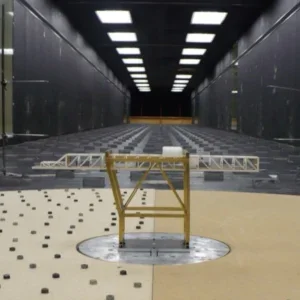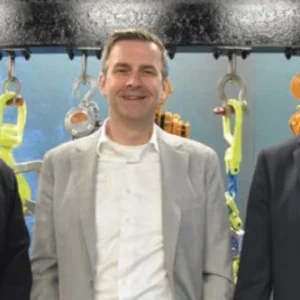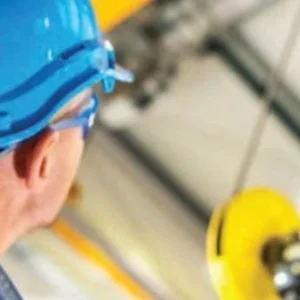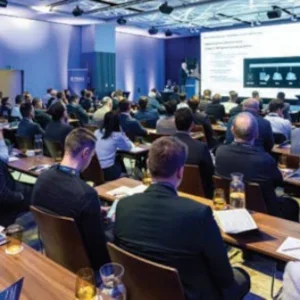Formed in 2008 in Aberdeen, Scotland, EnerMech provides a number of mechanical services to the oil and gas industry, including its cranes and lifting business, which provides installation, maintenance, operation and inspection of marine and offshore cranes.
The company started operations in Abu Dhabi through an acquisition in 2009, due to the strong oil market, which fitted with its planned work in the offshore industry.
Now in 2015, the company has a recently opened 20,000sq m facility in the United Arab Emirates city and is set to expand further, despite uncertainty over oil prices.
"The oil market usually opposes the general world economy, so therefore in 2009 the oil business was good," says David Moore, cranes and lifting manager. "However, while the economy is now recovering, we have not seen a slowdown in the oil market yet. Drillers are forecasting a slower year, but offshore projects in Abu Dhabi are still going ahead."
EnerMech works primarily with offshore operators such as ZADCO (Zakum Development Company) and ADMA (Abu Dhabi Marine Operating Company), both subsidiaries of the Abu Dhabi National Oil Company.
The growth of Abu Dhabi, and neighbouring Dubai, has been exponential over the last 50 years. "To get from one city to the other, you used to drive a 4×4 along the beach," says Moore. "Now there’s a motorway with four lanes in either direction which is now busy almost all of the time."
For Abu Dhabi, this growth has been built on the foundation of oil-which drives the offshore operations that EnerMech provides with services and maintenance. Across the border in Saudi Arabia, the offshore oil market is also set to boost EnerMech’s business, says Moore "For EnerMech, the next big thing in Saudi Arabia is the offshore market. We are aiming to station a ‘flying squad’ of service and support engineers in the country, as we expect to see growth in the market in 2015. We already have a large team of cranes and lifting personnel in the region, including six specialist crane technicians based in Abu Dhabi who provide flying squad support for the Middle East region.
"There are not many non-domestic offshore cranes and lifting companies that have operated in Saudi for long-it is mostly state-run and focus is mainly on local companies. However, EnerMech has reached a big enough size to make people in the market feel comfortable in giving us major contracts to run."
Other markets in the region offer a range of opportunities, says Moore. "The Qatar market is significant for oil and gas, as is Abu Dhabi. However, Kazakhstan, Azerbaijan and other markets around the Caspian all have huge potential for us."
To accommodate the potential growth in the area, EnerMech moved into a facility with space to grow, says Moore: "We acquired a larger facility than we initially needed, so we have room and plans to expand. We have around 110 cranes and lifting staff in the Middle East and Caspian region, making it our second-largest market after the UK."
Part of the work which takes place in the Abu Dhabi facility is refurbishing offshore cranes, which due to the harsh conditions require careful maintenance. "We check for corrosion and dimensional tolerance, remove the paint, re-weld and repair any sections which require it, and check that the metal is all the correct thickness, grade and hardness," says Moore. "We repaint the cranes with a marine paint system suitable for the offshore environment."
Along with projects such as the deconstruction and transport of a 30-yearold Liebherr crane operating offshore, to make room for its more modern Liebherr replacement, EnerMech also operates as a consultancy, recommending which cranes are required for a given project based on expected lifting operations, location and environmental requirements.
"Typically a boom of 50-60m is required, on a 100-120t crane-or around 50t for platform cranes," says Moore.
Training operators is also a key service offered by EnerMech, as due to the nature of the oil and gas market, training an operator on an offshore crane in situ is an expensive and potentially hazardous approach. The company, therefore, installed a crane simulator at its base in Abu Dhabi. This training has already been used in Baku, Azerbaijan, where the company had an obligation to nationalise its workforce, and so used a simulator to train up local operators.
The simulator now located at Abu Dhabi was previously installed at EnerMech’s facilities in Singapore and Australia. Using a highly-specialised piece of software, the simulator recreates the experience of operating an offshore crane with screens filling almost 180 degrees of vision and a full set of crane controls.
Weather conditions, light levels, and even accidents and incidents can all be simulated, providing trainee operators with as much experience as possible in how to react to different situations, as well as establishing an understanding of how to control of the crane and lifted loads.
Clients of EnerMech will send their operators to the facility for training and recertification, as well as deck crews, riggers and banksmen. Training is provided not just on the simulator but also on systems designed to replicate offshore lifting operations. On the company’s training rigging frame, sections of pipework and valves are installed to enable personnel to practice various lifting and handling tasks, to ensure they are being completed correctly and fully before performing them on offshore operations.
EnerMech trains clients’ personnel to the industry best-practice standards and in accordance with the BS7121 British Standard, before allowing them to gain further experience through workplace logbooks. This allows the candidates to build their competence before progressing on to the next stage, says EnerMech, and also applies to the lifting and slinging disciplines such as rigging and lifting, and banksman slinger, where EnerMech follows the Global OPITO Standards.






